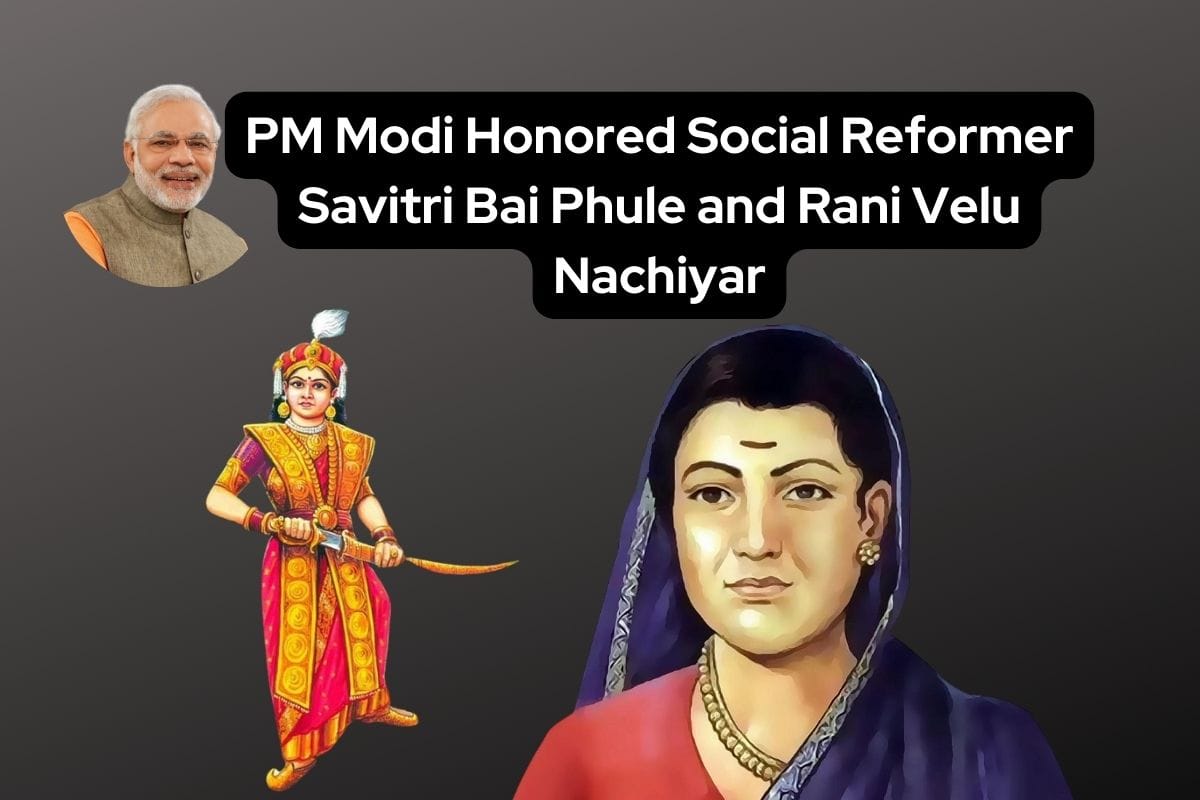
Latest Current Affairs – Prime Minister Narendra Modi honored social reformer Savitri Bai Phule and Rani Velu Nachiyar, the first queen to resist British colonial rule in India, on their birth anniversaries. In a social media post, Mr. Modi praised their compassion and bravery, emphasizing their invaluable contributions to the nation. The Prime Minister also shared moments from last month’s Mann Ki Baat program, where he had previously paid respects to Savitri Bai Phule and Rani Velu Nachiyar.
Who Was Savitri Bai Phule?
Savitribai Phule was a prominent social reformer and educationist in 19th-century India. Born on January 3, 1831, in Maharashtra, she played a crucial role in advocating for women’s rights and social equality.
Savitribai Phule was one of the pioneers of women’s education in India. Along with her husband, Jyotirao Phule, she established the first school for girls in Pune in 1848. Despite facing societal resistance and opposition, Savitribai Phule was dedicated to breaking down barriers to education for women and the lower castes.
Her efforts extended beyond education. Savitribai actively worked against social discrimination and the caste system. She was a leading figure in the social reform movement and advocated for the rights of oppressed communities, particularly women.
Savitribai Phule’s legacy is marked by her commitment to social justice and education. She remains an inspirational figure in India’s history, remembered for her pioneering contributions to women’s empowerment and social reform during a challenging period.
Who Was Rani Velu Nachiyar?
Rani Velu Nachiyar was a courageous queen and a notable historical figure in the 18th century in South India. Born in 1730 in Ramanathapuram, Tamil Nadu, she is remembered for her valiant efforts against British colonial rule during the period of the Carnatic Wars.
Rani Velu Nachiyar became the queen of Sivaganga after her marriage to Muthuvaduganathaperiya Udaiyathevar. When her husband was killed by British forces, she took charge of the kingdom and sought revenge against the British East India Company.
In 1780, Rani Velu Nachiyar allied with Hyder Ali of Mysore and waged a fierce guerrilla warfare against the British. She adopted innovative tactics, including using her army of women and building an army with the support of Marathas. With her strategic brilliance and determination, she managed to recapture her fortress from the British.
Rani Velu Nachiyar is remembered not only for her military prowess but also for her progressive measures. She abolished the custom of “Sati” in her kingdom, demonstrating a commitment to social reforms.
Her legacy as a brave and progressive queen who resisted British colonization has earned her a place in history, and she is celebrated for her contributions to the struggle for independence in South India.
Important Questions For Exams
- Who was Savitribai Phule, and what role did she play in the social reform movement in 19th-century India?
- Describe the contributions of Savitribai Phule in the field of education. Highlight the challenges she faced and overcame.
- Discuss Savitribai Phule’s efforts in advocating for the rights of women and marginalized communities. Provide specific examples.
- Explain the significance of the school established by Savitribai Phule in Pune. How did it contribute to social change?
- How did Savitribai Phule challenge societal norms and stereotypes regarding women’s education and roles in society?
- Who was Rani Velu Nachiyar, and what were her contributions to the resistance against British colonial rule in South India?
- Describe the circumstances that led Rani Velu Nachiyar to take up arms against the British East India Company.
- Discuss the military strategies employed by Rani Velu Nachiyar in her resistance against the British. How did she utilize unconventional tactics?
- Explain the significance of Rani Velu Nachiyar’s alliance with Hyder Ali of Mysore in her fight against the British.
- Highlight Rani Velu Nachiyar’s role in social reforms, including her efforts to abolish the practice of “Sati” in her kingdom.


